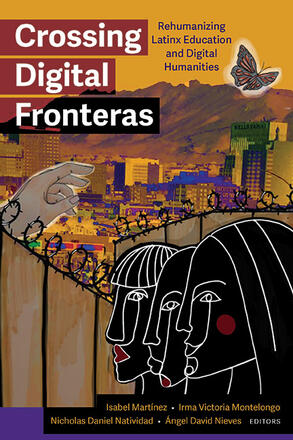
Crossing Digital Fronteras
Rehumanizing Latinx Education and Digital Humanities
Demonstrates the liberatory potential of Latinx Digital Humanities at Hispanic-Serving Institutions and in Latinx Studies classrooms.
Description
Crossing Digital Fronteras is about liberatory possibilities and digital technologies in the classroom. The book centers critical Latinx Digital Humanities to illustrate the ways college faculty and Latinx students harness digital tools to engage in "messy" yet essential active learning and knowledge production in Hispanic-Serving Institutions (HSIs) and Latinx Studies courses. With increasing Latinx student enrollment and a growing need for the humanities in our complex world, it is essential that HSIs and instructors integrate twenty-first-century tools into their teaching practices to truly "serve" Latinx students and communities. This book definitively inserts Latinx Digital Humanities into broader conversations about best practices at HSIs, on the one hand, and digital humanities and social justice, on the other. Most importantly, it provides practical examples of innovative, rehumanizing digital pedagogies that give students the liberatory learning they deserve.
Isabel Martínez is Associate Professor of Sociology and Anthropology and Cultures, Societies and Global Studies and Director of Latinx, Latin American and Caribbean Studies at Northeastern University. She is the author of Becoming Transnational Youth Workers: Independent Mexican Teenage Migrants and Pathways of Survival and Social Mobility. Irma Victoria Montelongo is Associate Professor of Instruction and Director of the Chicano Studies Program at The University of Texas at El Paso. Nicholas Daniel Natividad is Associate Professor of Criminal Justice at New Mexico State University. Ángel David Nieves was Dean's Professor of Public and Digital Humanities and Director of the Humanities Center at Northeastern University. He authored An Architecture of Education: African American Women Design the New South.
Reviews
"Crossing Digital Fronteras speaks directly to how digital tools can be used in the effort to rehumanize education for Latinx students, a community that, as the editors point out, has been the target of racist and xenophobic discourse. Engagingly and accessibly written, the volume makes an important and timely intervention in the field of education, particularly with respect to the growing literature on decolonial education, Latinx students in higher education, and 'servingness' in Hispanic-Serving Institutions." — María Eugenia Cotera, coeditor of Chicana Movidas: New Narratives of Activism and Feminism in the Movement Era